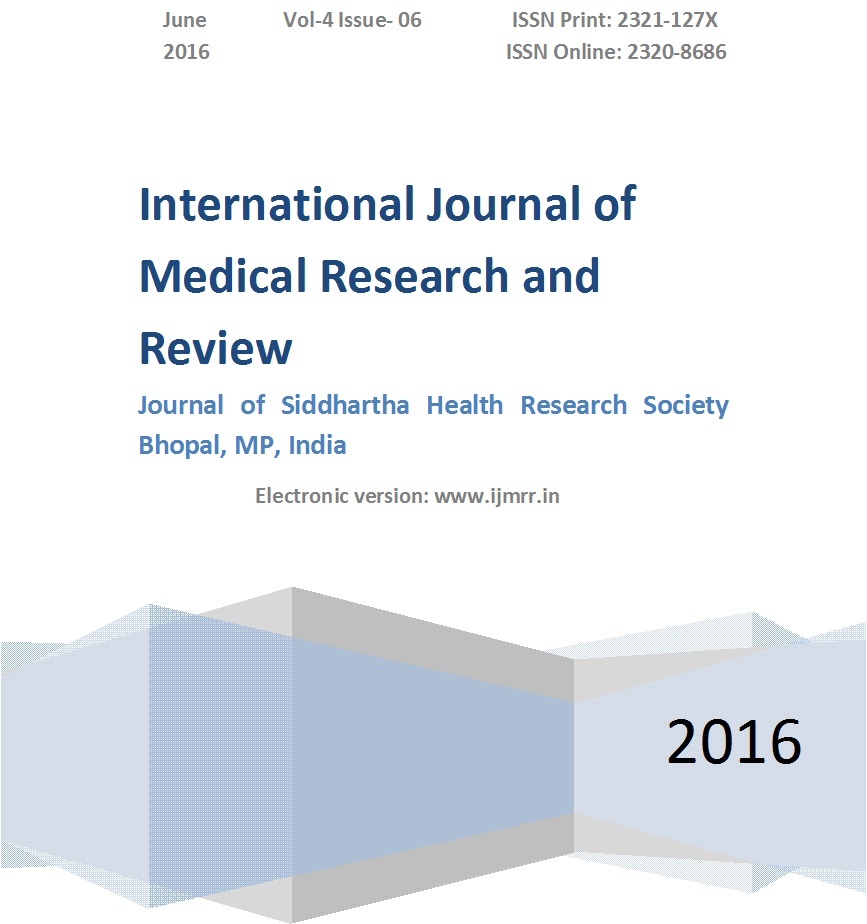A study to assess the prevailing misconception on HIV/AIDS among rural population
Abstract
Introduction: HIV, the human immunodeficiency virus, is the virus that causes AIDS. For many reasons, AIDS is a disease that commonly misunderstood disease and as a result, unduly feared, but the weapon against fear is knowledge. Objective is to assess knowledge and the status of prevailing misconception of HIV/AIDS in the rural population of Venkatachalam PHC area.
Methods & material: Community based descriptive cross sectional study among people aged more than 13 years, using cluster samplingtechnique, 1332 samples were selected. A pretested structured questionnaire was administered.
Results: It was found that 452(34.02%) of the study population had the misconception that HIV/AIDS can be transmitted by mosquito bites and 157(12.00%) thought that HIV/AIDS can be transmitted by just talking to HIV/AIDS affected person. In the age group of 44-53, 40(31.0%) thought that HIV was transmitted through mosquito bite while 16(12.4%) thought that HIV/AIDS was transmitted by shaking hands, talking and caring for HIV/AIDS affected persons. The prevalence of misconception with regards to modes of transmission was high even among the professionals and skilled laborers.
Conclusion: It can be concluded from the study that only 30% of the study population knew that HIV is a virus; 54% of the subjects knew all the 4 modes of transmission where as 22.40% had no knowledge about all the modes of Transmission.
Downloads
References
2. Global HIV/AIDS Response Progress Report - Epidemic update and health sector progress towards Universal Access. World Health Organization; 2011.
3. Sudha RT, Vijay DT, Lakshmi V. Awareness, attitudes, and beliefs of the general public towards HIV/AIDS in Hyderabad, a capital city from South India. Indian Journal of Medical Science. 2005;59:307-316.
4. Mahajan P, Sharma N. Awareness Level of Adolescent Girls Regarding HIV/AIDS (A Comparative Study of Rural and Urban Areas of Jammu. J. Hum. Ecol. 2005;17(4) :313-314.
5. Aggarwal R M, Rous J J. Determinants of Knowledge regarding HIV/AIDS among Women in India. J Dev Stud.2006;42: 371-401.
6. Centers for Disease Control and Prevention. Revised Guidelines for HIV Counseling, Testing, and Referral and Revised Recommendations for HIV Screening of Pregnant Women. MMWR 2001;50 (No. RR-19): 11-15.
7. Sangoleetal S. Evaluation of Impact of Health Education Regarding HIV/AIDS on Knowledge and Attitude among Persons Living with HIV. Indian Journal of Community Medicine. 2003;28 (1):30-33.
8. India. Resolves to Defeat HIV/AIDS. National AIDS Control Organization. Ministry of Health and Family Welfare, Government of India. New Delhi. 2005.



 OAI - Open Archives Initiative
OAI - Open Archives Initiative


